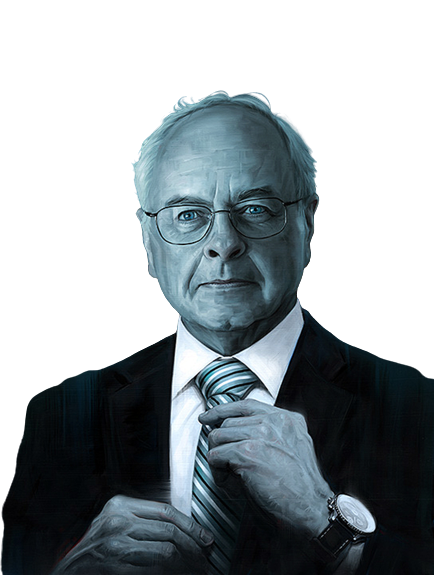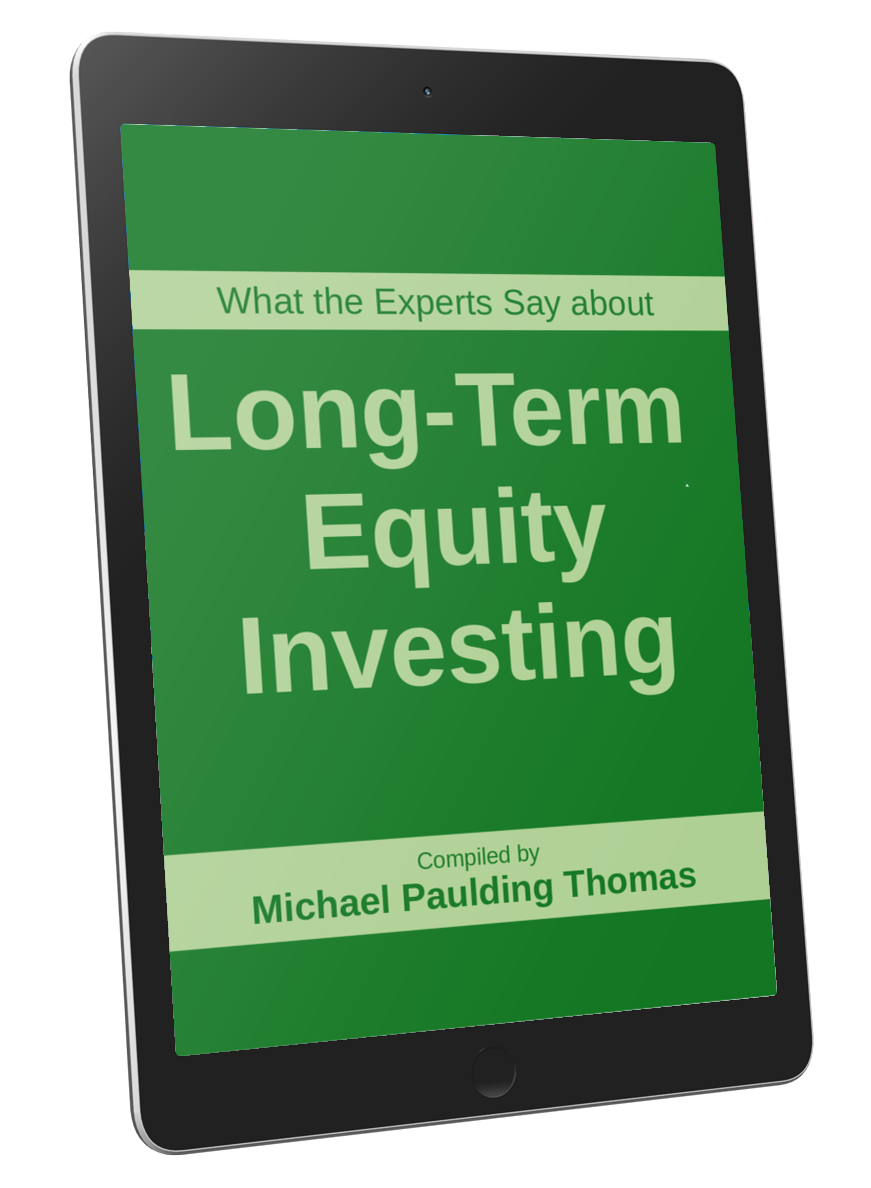Last updated: 19 Jan 25 00:03:15 (UTC)
Nick Murray's 20 Investment Epiphanies
My investment philosophy is based upon the teachings of Nick Murray and Warren Buffet. Below are some of Nick’s best thoughts on the subject. ―Michael Paulding Thomas

Nick Murray is the Advisor to Advisors and prolific author. With 50+ years of experience in the investment markets he is an expert in the art and science of helping individual investors work toward reaching their investment goals. He is the recipient of the 2007 Malcolm S. Forbes Public Awareness Award for Excellence in Advancing Financial Understanding.
“On my 41st anniversary in our great profession, I did a piece for Financial Advisor magazine called “Forty-One Epiphanies,” listing that number of great realizations I’d experienced during those years. Below is an excerpt of the 20 epiphanies that are client-oriented.”" ―Nick Murray
-
Most people who invest most of their capital in fixed income investments as they go into retirement will run out of money well within their lifetimes, and will die destitute and dependent upon their children. Equities = life. Bonds = death-in-life.
-
Optimism is the only realism. It is the only worldview that squares with the facts and with the historical record.
-
Get a year’s living expenses in a money market fund as quickly as you can, even if you have to live on coffee and rice while you’re saving toward this goal.
-
The origin of all wealth is threefold: personal initiative, hard work, and thrift. Tell me the percentage of your income that you’re putting away, and I’ll tell you whether you’re going to achieve your financial goals.
-
The world does not end. It only seems to be ending. This time is never different.
-
Americans say they want safety and income. What they really want is all the income they can get, and the illusion of safety. More money has been lost in the quest for the chimerical combination of safety and high yield than in all the stock market crashes in history.
-
The only sane investment objective in retirement is an income that grows at a minimum of the same rate at which one’s cost of living is rising.
-
Disciplined diversification is a pact with heaven: I will never own enough of any one thing to be able to make a killing in it; I will never own enough of any one thing to be able to be killed by it.
-
All investment “new eras” end in ruin, because all inventions follow the same arc, from miracle to commodity.
-
Price and value are inversely correlated. When the price of any investment sector is rising, its value is declining; the converse is also true.
-
The most fascinating aspect of all financial crises is their essential sameness.
-
Get out of debt, and stay out of debt. Keep your nut as low as you possibly can, especially in “good times.”
-
What goes around comes around, even if it’s on a very long, elliptical orbit.
-
Inflation is always and everywhere a monetary phenomenon.
-
The advance is permanent. The declines are temporary. There have been thirteen bear markets with an average decline of 30% since the end of World War II. The first one started on May 29, 1946. That day, the S&P Index closed at 19.5 As I write, thirteen ends-of-the-world later, it is 1,575. Stocks are up nearly eighty times over these seven decades because earnings are up nearly eighty times.
-
The dominant determinant of the real long-term returns real people really get isn’t investment performance. It’s investor behavior.
-
Protectionism always raises consumer prices above where they would otherwise be; it also invariably destroys more jobs than it “saves.”
-
All investments are income investments. They are made for the production either of current income, or of future income, or of income for someone else. The only sane test of an investment’s long-term income-producing potential is its long-term total return, not its current yield. By that one sane test, equities are a far better income investment than bonds.
-
The computer in your cell phone is a million times smaller, a million times cheaper, and a thousand times more powerful than the mainframe computer used by E.F. Hutton & Company on the day I joined that firm, May 1, 1967. This is a billionfold increase in computing power per dollar. In the next quarter century, there will be another such billionfold increase, at which point technology will have essentially solved all our current problems: energy, the environment, poverty and disease. This is the exact worst moment in human history to turn pessimistic.
-
Ten thousand people a day are retiring in this country every day, without a clue that their basic financial challenge is not loss of principal but erosion of purchasing power.
“Simple Wealth, Inevitable Wealth by Nick Murray is the best investment book I’ve ever read, and a great summary of my investment philosophy. If it resonates with you then you’ll love working with me. If it doesn’t, you won’t.” ―Michael Paudling Thomas
- Subscribe to my monthly client newsletter. I send out 12 issues a year and will not “spam” you.
 A brief compilation of excellent investment advice from the best of the best.
A brief compilation of excellent investment advice from the best of the best.
,
Securities offered through Innovation Partners, LLC. Member FINRA/SIPC



